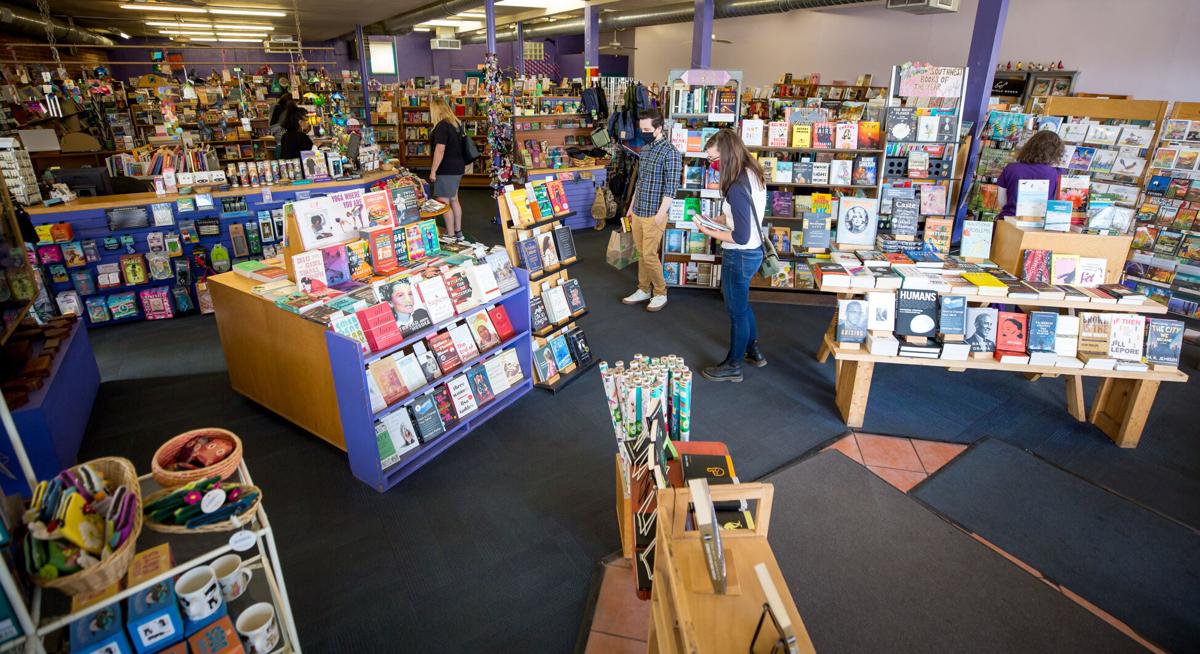When Larry McMurtry died in March, Tucson felt his passing more deeply than most. For 25 years, McMurtry divided his time between the Catalina Foothills and his beloved hometown of Archer City, Texas.
While here, he and writing partner Diana Ossana wrote the screenplay that became the movie “Brokeback Mountain.”
In the mid-1990s, he even owned a bookstore in town: Booked Up at 2828 N. Stone Ave., just north of Glenn Street.
But be honest, Tucson: Do you remember his bookstore?
Not many do, and the reason may surprise you. It wasn’t that Tucsonans didn’t read. His store went unnoticed because so many of us did.
“All of us already had our own favorite bookstores,” said Jeff Yanc, a former bookstore owner and now the program director at The Loft. “Back in the ‘90s, if you wanted a new book, you went to a family-owned bookstore. And chances are you knew the family.”
On the front counter at the Book Stop, the old-fashioned bookshop on Fourth Avenue, is a faded newspaper clip that counted 50 Tucson bookstores in 1979.
Mrs. Tiggy Winkles was a toy store and children’s bookstore on Broadway near Country Club Road. The Haunted Bookshop at Tohono Chul was the vaunted bookshop on the north side. The owner of the Mad Hatter Bookshop on Campbell once threw McMurtry from his store for excessive browsing.
Coyote’s Voice, Footprints of a Gigantic Hound, Green Fire Books, Marco Polo and I … the list of bookstores goes on.
Yanc remembers them well. He also remembers being at ground zero when Tucson’s book world began to shake in the mid-1990s. He was a buyer for Bookmark, the largest bookstore in Tucson, when the Blanton family closed the store in 1999.
Not yet discouraged, Yanc and three friends opened Reader’s Oasis at 3400 E. Speedway in 2000.
“We thought we saw a niche if we could create something smaller than Bookmark … bright and open like B. Dalton … and welcoming like the family-owned stores we’d grown up with. We wanted to be a community meeting place: book signings, book clubs, movie screenings, small art shows.”
The concept proved popular and worked well for a time, but new challenges appeared. An online bookstore called Amazon had begun to gain traction. Bigbox bookstores such as Barnes & Noble and Borders were offering books at deeply discounted prices.
“My ‘oh, no’ moment came one day when we sold out of a new Harry Potter book,” Yanc said. “The book was on backorder at the publisher. I was desperate, so I drove to Costco and bought every copy they had on the table. The book cost me less at Costco than it did from the publisher. On the drive back to the store, I remember thinking, ‘This isn’t good.’”
Trudy Mills, who joined with Kate Randall to purchase Antigone Books in 1986, remembers the feeling.
“Antigone had always been a feminist bookstore, so we were lucky we had a pretty loyal base of customers,” she said. “Still, we had expanded our inventory. We felt the squeeze for sure. Our sideline sales for things like cards and gifts probably kept us going there for awhile.”
Mills said the tide finally started to turn in the 2010s. “Who knows why, exactly,” she admitted. “Maybe people got tired of staring at screens all day. Maybe their Kindles started to break down. Maybe they started to feel nostalgic about the feel of a book in their hands. Whatever it was, we began selling books again.”
It helped that Amazon, Borders and Barnes & Nobel seemed preoccupied with trying to kill each other.
“There was a major book war going on over our heads,” Mills said. “We were able to stay out of the line of fire there for awhile.”
In hindsight, though, the biggest difference was that Antigone began seeing young-adult customers again. More, in fact, than ever before. Students. Young professional women. Young mothers. An increasing number of young men.
A culture change was afoot, a rising tide that lifted independent booksellers throughout the country. Between 2010 and 2019, the number of independent bookstores in the U.S. increased 35% to almost 2,000 stores.
Here in Tucson, the youth movement had another interesting effect. In 2018, Mills and Randall sold Antigone to Kate Stern, Morgan Miller and Melissa Negelspach – three young professionals who had worked at the store.
Antigone, at 411 N. Fourth Ave., is one of a few independent booksellers still standing in Tucson. Others include:
Mostly Books, 6208 E. Speedway
Book Stop, 214 S. Fourth Ave.
Bookmans, with locations at 3733 W. Ina Road, 6230 E. Speedway, and 3330 E. Speedway
Barrio Books, 720 W. Silverlake Road inside Hotel McCoy
Revolutionary Grounds, 4675 E. Speedway Blvd.
“As easy as it is to mourn the loss of those great, old bookstores, I think we should really marvel at the stores we still have,” Yanc said. “It has been a constant battle, for a long time. But there they are, still opening their doors every morning. It’s amazing, when you think about it.”





